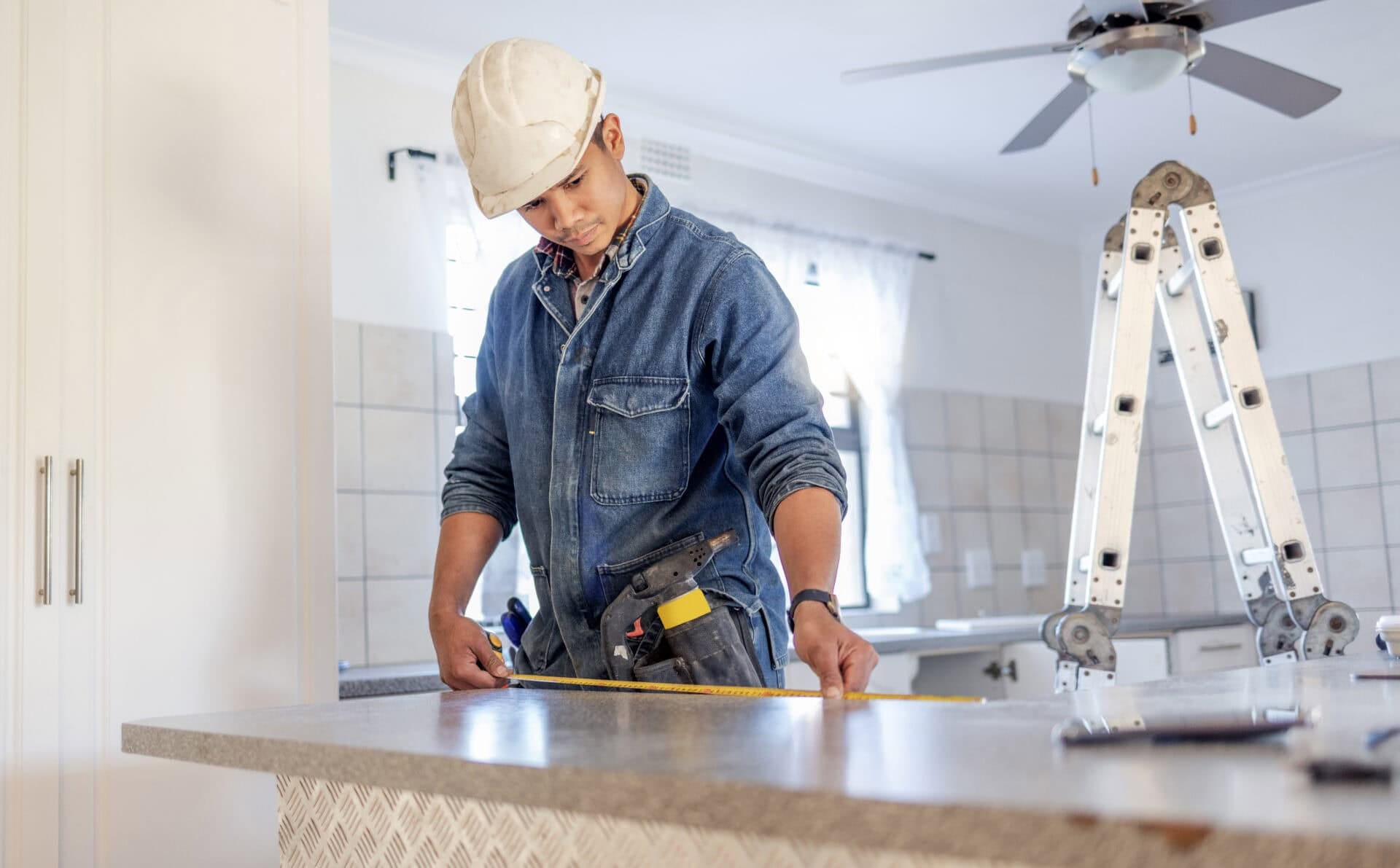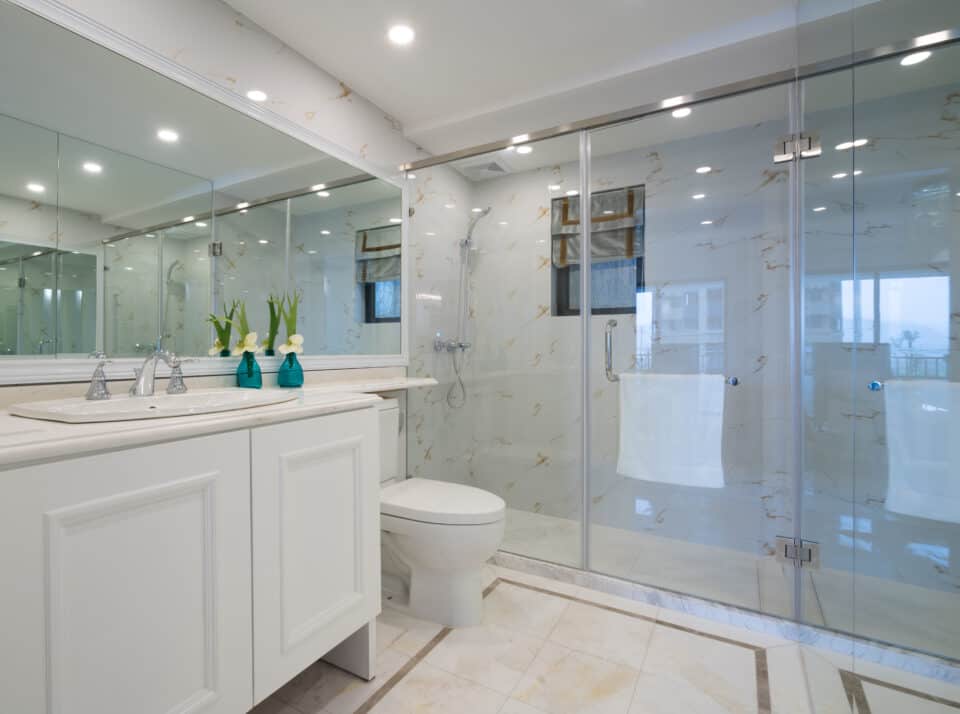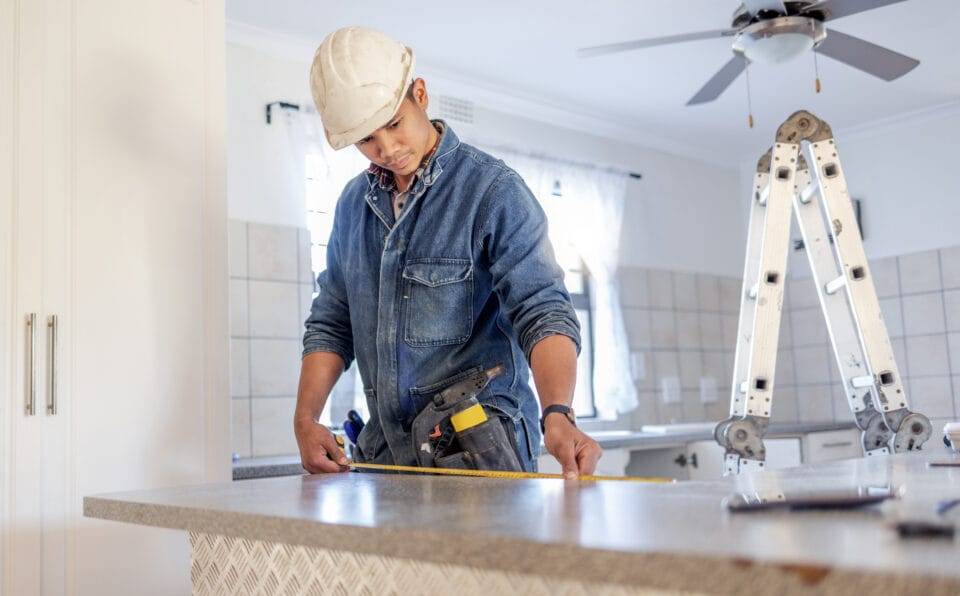Planning a whole home remodel in 2025 is one of the most transformative projects a homeowner can undertake. Whether your goal is to modernize outdated spaces, increase energy efficiency, or enhance property value, a comprehensive remodeling plan is key to success. In this guide, we’ll break down every critical phase of a home remodel, helping you move confidently from vision to reality.
From choosing the right whole home remodeler to understanding timelines and trends, this guide will help you avoid common pitfalls and ensure your investment enhances your living space for years to come.
Key Takeaways:
- A home remodel involves renovating most or all of a home’s interior (and often exterior).
- Hiring an experienced home remodeler ensures better results and fewer delays.
- Strategic planning, budgeting, and design choices are essential to a successful outcome.
- Home remodels add value, improve functionality, and can reflect your long-term lifestyle needs.
What Is a Whole Home Remodel?
A whole home remodel refers to the process of updating or reconfiguring multiple rooms—or even the entire house—at once. This can include kitchen and bathroom upgrades, reworking floor plans, updating electrical or plumbing systems, and more. Home remodeling can also encompass exterior work, such as roofing, windows, and siding.
Rather than remodeling room by room, homeowners opt for a unified approach to create a cohesive design, improve flow, and address long-term lifestyle needs.
Why Consider a Home Remodel?
There are many reasons why homeowners pursue a whole home remodel in 2025:
- Your home no longer suits your needs or style.
- You’ve recently purchased a fixer-upper.
- You want to increase resale value.
- Energy efficiency improvements are needed.
- You want a modern layout with open-concept living.
Step 1: Define Your Remodeling Goals
The first and most important step is to define why you’re pursuing a home remodel. Ask yourself:
- What’s not working in your current layout?
- What features or aesthetics do you envision?
- What are your top priorities—functionality, aesthetics, resale value, or sustainability?
Clarity on these goals will drive your design decisions and help your whole home remodeler execute the vision accurately.
Step 2: Set a Realistic Budget
One of the most critical parts of planning a whole home remodel is setting a budget that aligns with your goals and local market costs. Consider the following when creating your budget:
- Labor and contractor fees
- Materials and finishes
- Permit costs
- Contingency (10–20%) for unexpected issues
- Temporary housing or storage (if needed)
A seasoned whole home remodeler can help you understand typical costs in your region and suggest smart ways to stay on budget without compromising quality.
Step 3: Choose the Right Whole Home Remodeler
Your home remodeler will have a major impact on the outcome of your project. Look for a firm with experience in large-scale renovations, strong client testimonials, and a portfolio that matches your design vision.
What to Look For:
- Proven experience with home remodels
- Transparent communication and timelines
- Proper licensing and insurance
- Strong design-build capabilities
- Project management expertise
Ask detailed questions, request references, and be clear about expectations during the hiring process.
Step 4: Create a Design Plan
Whole home remodeling requires a cohesive, strategic design plan. Your remodeler will likely pair you with a designer or architect who will translate your vision into blueprints and 3D models.
Common Design Elements in 2025:
- Open-concept kitchens and living areas
- Home offices and multifunctional spaces
- Energy-efficient windows and insulation
- Spa-inspired bathrooms
- Smart home integrations
Make design decisions room by room, while ensuring that the overall aesthetic and function tie the home together.
Step 5: Understand the Remodeling Timeline
A home remodel is not a quick process. Timelines can range from 3 months to over a year, depending on project complexity, permit approvals, and unforeseen issues.
General Timeline Breakdown:
| Phase | Estimated Duration |
|---|---|
| Planning & Design | 4–8 weeks |
| Permitting | 2–6 weeks |
| Demolition | 1–3 weeks |
| Construction | 3–9 months |
| Final Touches | 1–2 weeks |
Communicate regularly with your whole home remodeler to track progress and resolve issues quickly.
Step 6: Know the Benefits of Whole Home Remodeling
Choosing a home remodel over piecemeal updates provides several benefits:
Top Benefits:
- Cost-efficiency: Bundling renovations can reduce labor and material costs.
- Design consistency: A unified style improves aesthetics and resale appeal.
- Less disruption: One large renovation is less disruptive than several small ones.
- Increased home value: Home remodels can dramatically boost market value.
Step 7: Stay Involved Throughout the Project
Even with a trustworthy home remodeler, your involvement is vital. Attend walkthroughs, review progress photos, and voice concerns early. This keeps the project aligned with your expectations and avoids costly revisions.
Tips for Staying Involved:
- Use project management software (if offered)
- Set regular update meetings
- Review and approve changes quickly
- Ask for progress updates with photos
What to Expect During a Whole Home Remodel
Whole home remodels are exciting, but they also come with challenges:
Be Prepared For:
- Temporary displacement: You may need to move out during construction.
- Dust and noise: These are unavoidable during major work.
- Scope creep: Unexpected issues may require additional work and budget.
Choosing an experienced home remodeler can help mitigate most of these stressors and keep your remodel on track.
Design Trends for Whole Home Remodels in 2025
Remodeling styles evolve with time. Here are some of the most popular trends shaping whole home remodeling projects in 2025:
- Biophilic design: Bringing the outdoors in with natural materials and plants.
- Sustainable features: Solar panels, smart thermostats, and recycled materials.
- Warm neutrals: Earthy tones replacing stark whites and grays.
- Textured finishes: Statement walls using plaster, wood, or tile.
- Universal design: Accessible layouts for all ages and abilities.
These trends help your home remodel feel modern while improving long-term usability.
Turn Your 2025 Dream Home into a Reality
Planning a whole home remodel in 2025 is your chance to reimagine every corner of your space—from layout and function to style and comfort. With the right planning, vision, and professional team, your dream home is more achievable than ever.
At Armored Painting, we go beyond paint. Our expert home remodeling services are built on quality craftsmanship, attention to detail, and a commitment to bringing your vision to life—whether it’s a full-scale renovation or room-by-room transformation.
Ready to begin your remodeling journey? Trust Armored Painting to help you build a home that’s not only beautiful—but built to last. Contact us today to know more.
Frequently Asked Questions
How long does a whole home remodel usually take?
Depending on scope and complexity, most home remodels take 6–12 months from start to finish. Delays may occur due to permits or material shortages.
Is it better to remodel all at once or in stages?
While remodeling in stages may seem more manageable, a whole home remodel is often more cost-effective and ensures design consistency throughout the home.
Do I need permits for a whole home remodel?
Yes. Most whole home remodels require multiple permits, especially for structural, plumbing, or electrical work. Your remodeler will typically handle the permitting process
What’s the difference between a general contractor and a whole home remodeler?
A general contractor oversees construction, while a whole home remodeler typically offers full-service design-build solutions, managing everything from planning to execution.




